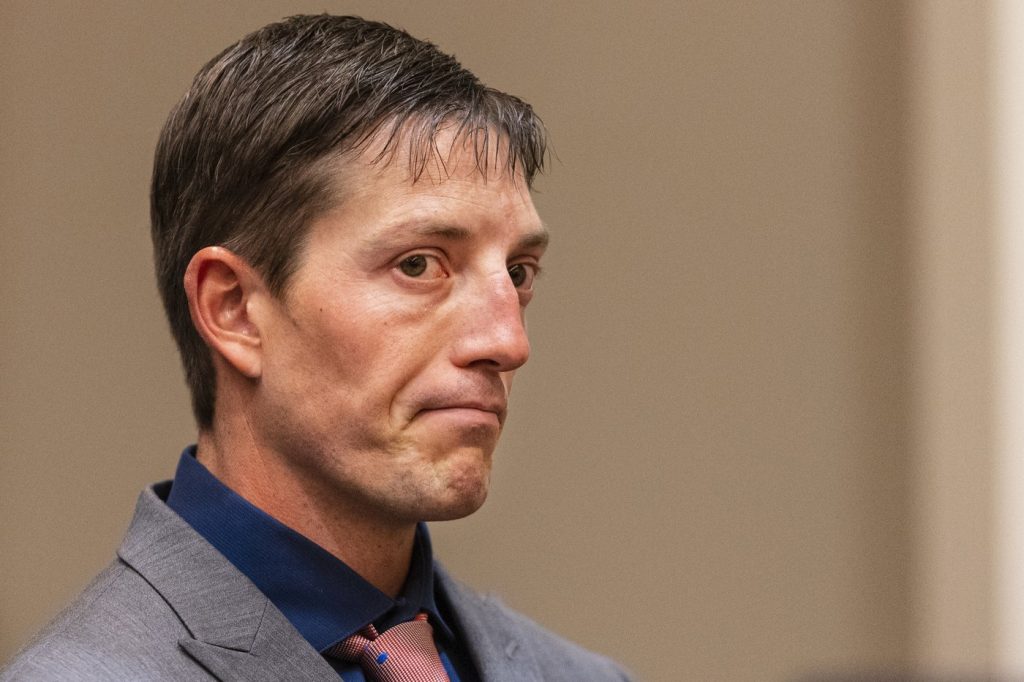GRAND RAPIDS, Mich. (AP) - The trial of former police officer Christopher Schurr, charged with second-degree murder in the killing of 26-year-old Patrick Lyoya, is poised to begin in Grand Rapids, three years after the case incited weeks of protests and national outrage. Patrick Lyoya, a Congolese immigrant, was fatally shot by Schurr, who is white, during a traffic stop on April 4, 2022. The incident drew significant attention as it highlighted ongoing issues of systemic racism within law enforcement.
On the day of the incident, Schurr pulled over Lyoya for improper license plates amidst rainy weather. Body camera and dash camera footage reveals that after Schurr requested Lyoya's driver's license, Lyoya fled the scene. In the ensuing struggle, Schurr attempted to deploy his Taser but the situation escalated. The footage shows that while Lyoya was facedown on the ground, Schurr shot him in the back of the head.
Lyoya's family has emphasized that he came to the U.S. seeking refuge from violence in the mineral-rich eastern Congo. In Grand Rapids, he was raising two children, adding his name to a tragic list of Black immigrants who sought a better life only to face violent encounters with law enforcement. Civil rights leader Rev. Al Sharpton, who eulogized Lyoya, pointed out the significant date of the shooting, noting it coincided with the anniversary of Martin Luther King Jr.'s assassination, emphasizing the historical context of Lyoya's death.
Christopher Schurr, now 34, was fired from the Grand Rapids police department shortly after being charged in June 2022. During the trial, Schurr’s defense team plans to assert that he acted in self-defense during the encounter. Prosecutors, however, argue that the use of lethal force was unnecessary and excessive. Conviction could result in a life sentence for Schurr.
The role of the Taser will be pivotal in the trial, with prosecutors saying it had already been deployed and thus posed no threat to Schurr during the confrontation. The debate around Tasers, viewed as non-lethal weapons, becomes complex when used by individuals other than law enforcement. Experts believe that the video evidence, which shows Schurr telling Lyoya to drop the Taser, will be scrutinized in terms of whether it constituted a proper warning prior to him using lethal force.
This case is emblematic of broader discussions surrounding police conduct and the implications of their use of force, particularly against Black individuals. Legal experts suggest the physical struggle between Schurr and Lyoya will play a crucial role in determining the outcome of the trial, as Schurr's defense argues that fear for his safety justified his actions.
As the trial commences with opening statements scheduled for Monday and expected to last for at least a week, it represents a significant moment not only for the communities affected but also for ongoing national dialogues about systemic racism and police accountability in America.











